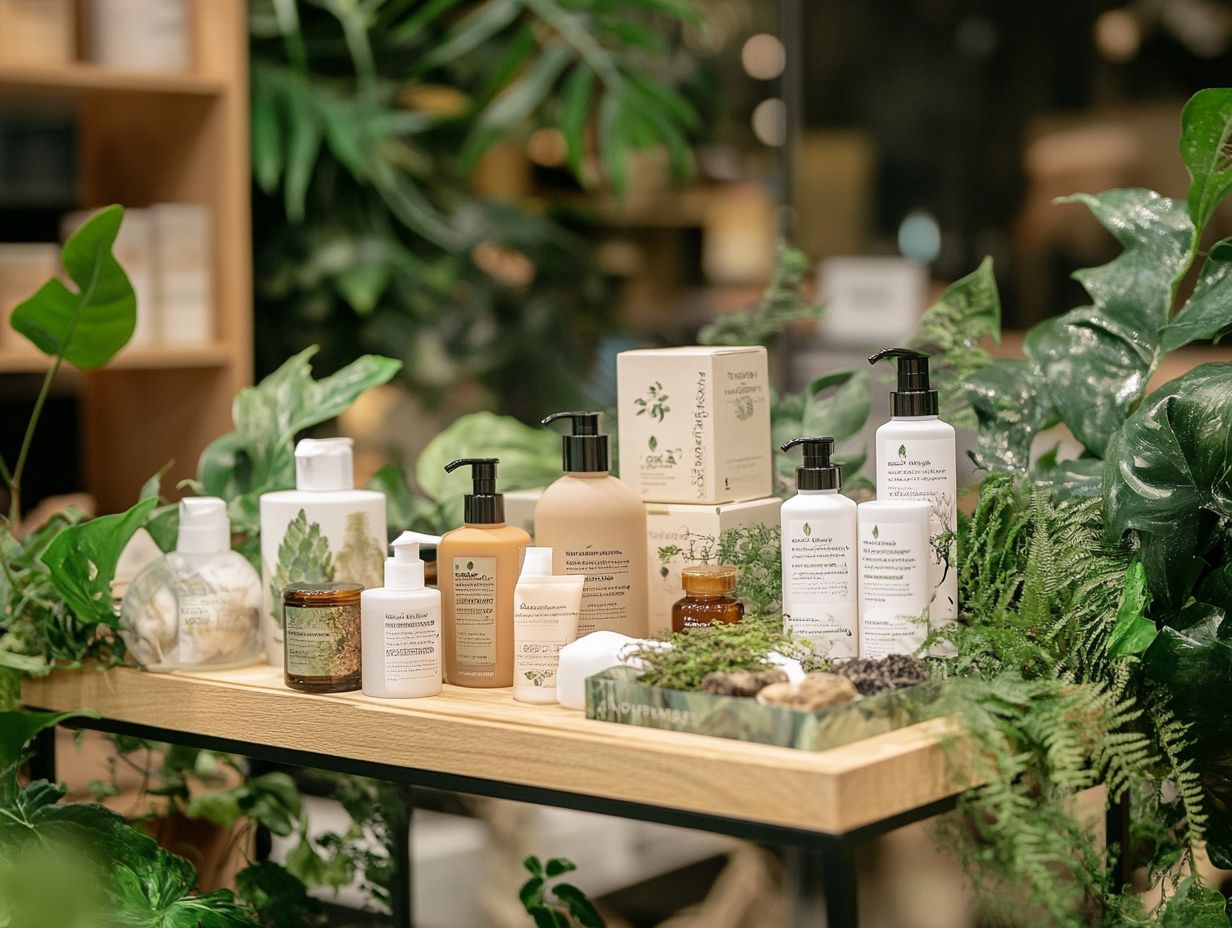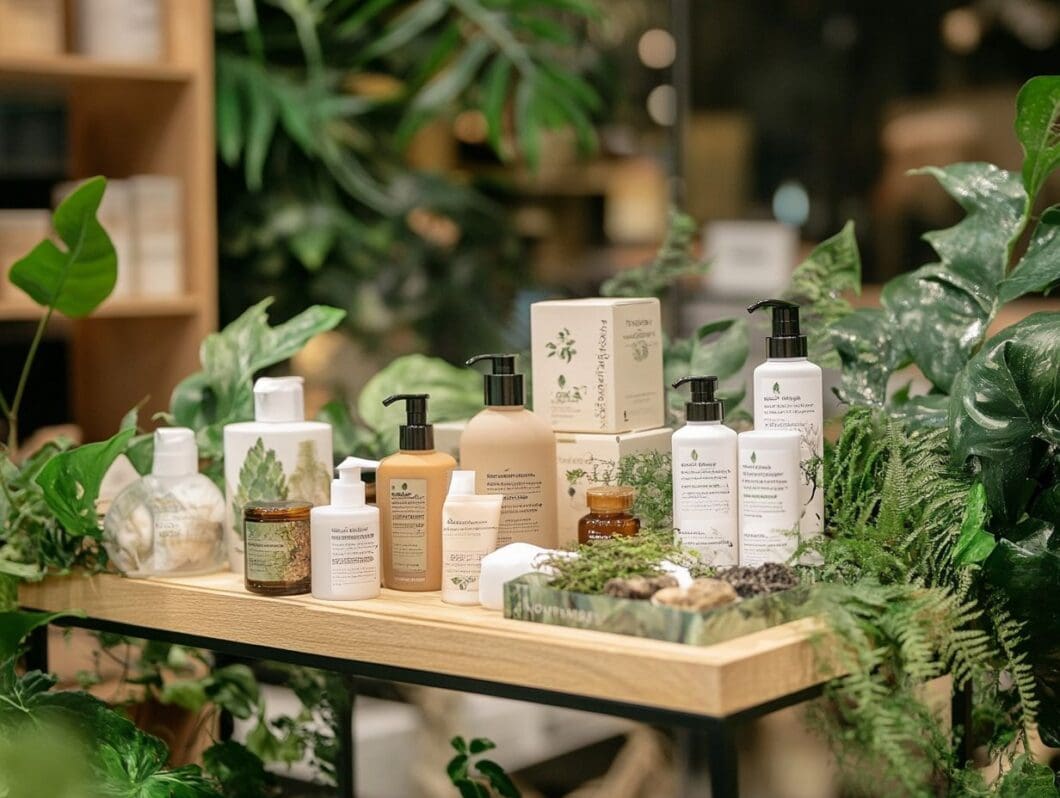In a world increasingly focused on environmental responsibility, the beauty industry is undergoing a significant transformation.
This article explores the concept of sustainability and its critical importance within the beauty sector.
It highlights the leading brands paving the way with innovative sustainable practices and specific initiatives.
The journey isn’t without its challenges—discover the obstacles that brands face and how they affect consumer choices.
We look ahead to the future of sustainability in beauty, examining potential changes on the horizon.
Join us as we navigate this essential topic!
Key Takeaways:

What is Sustainability?
Sustainability refers to the capacity to maintain ecological and environmental balance through responsible resource utilization and the promotion of practices that minimize environmental impact. Within the beauty industry, this concept includes the use of eco-friendly products, biodegradable materials, and sustainable packaging, all of which collectively support a circular economy. It is imperative for brands to adopt these principles in order to meet the increasing expectations of environmentally conscious consumers and contribute to broader climate objectives.
In the contemporary context, where climate change presents significant challenges, the importance of sustainability extends across various industries, particularly in beauty.
Brands can implement practices such as sourcing ingredients from renewable resources, utilizing solar energy in production processes, and providing refillable containers. These initiatives not only reduce waste but also encourage consumers to engage in sustainable lifestyles.
The adoption of biodegradable materials plays a crucial role in minimizing plastic pollution, thereby making a measurable impact on ecosystems. By embracing a circular economy that prioritizes recycling and repurposing, companies can foster a more harmonious relationship between their products and the planet, ultimately paving the way for a more sustainable future.
Why is it Important in the Beauty Industry?

The significance of sustainability in the beauty industry is rooted in enhancing consumer trust and promoting corporate responsibility. Consumers are increasingly inclined to seek products that align with their values, particularly eco-conscious individuals who prioritize sustainable ingredients and practices in their purchasing decisions.
This shift in consumer behavior is instigating a transformative effect throughout the beauty sector, compelling brands to adopt more environmentally friendly practices and demonstrate transparency in their supply chains. By clearly communicating their sourcing methods and the origins of their ingredients, companies cultivate a sense of reliability that resonates with consumers. The growing demand for ethically sourced ingredients has contributed to the rapid expansion of numerous beauty brands committed to sustainability.
As consumers become more informed and discerning, they tend to reward businesses that advocate responsible practices. This trend results in substantial growth for brands that prioritize sustainability as a core value.
Sustainable Practices of Major Beauty Brands
Major beauty brands are increasingly implementing sustainable practices in response to market trends and consumer expectations. This shift has resulted in innovations concerning product quality, the introduction of cruelty-free products, and the development of recyclable packaging.
These efforts reflect a commitment to minimizing environmental impact and aligning with the values of younger generations.
Brands Leading the Way

Brands such as Drunk Elephant, Tata Harper, and Biossance are at the forefront of the sustainable beauty movement, prioritizing clean beauty and establishing new standards of innovation in product formulation and ethical practices.
These companies not only create products that are free from harmful chemicals but also highlight the significance of sustainable sourcing and eco-friendly packaging. For example, Drunk Elephant adheres to a ‘meltdown‘ philosophy, ensuring that each formula is developed with only the most effective ingredients while minimizing its environmental impact. Conversely, Tata Harper promotes a farm-to-face approach by cultivating many of its ingredients on its own organic farm. Additionally, Biossance is distinguished by its commitment to renewable resources, particularly in its efforts to replace traditional ingredients with sustainably sourced alternatives.
Together, these brands represent a comprehensive vision for beauty that integrates personal care with the health of the planet.
Specific Initiatives and Efforts
Specific sustainability initiatives within the beauty industry encompass efforts to reduce packaging waste through the implementation of refillable products and biodegradable packaging. These initiatives significantly influence consumer behavior and purchasing decisions.
Numerous beauty brands are actively integrating these eco-friendly practices to respond to the increasing environmental concerns expressed by consumers. For example, a prominent skincare company reported a 30% increase in sales following the launch of a refillable container program, thereby demonstrating the effectiveness of sustainable initiatives.
The use of biodegradable materials has proven to resonate strongly with eco-conscious consumers; research indicates that approximately 70% of consumers are more inclined to purchase products crafted from sustainable resources. Brands that commit to these strategies not only contribute positively to environmental sustainability but also enhance their brand loyalty and market share.
Challenges and Barriers to Sustainability

Despite the growing emphasis on sustainability, the beauty industry encounters numerous challenges and obstacles in this regard. These include the necessity to satisfy rigorous market expectations while simultaneously minimizing environmental impact and ensuring that product innovation aligns with consumer preferences.
Obstacles Faced by Brands
Brands face numerous challenges in their sustainability efforts, including the necessity to balance product quality with consumer expectations and the need to navigate evolving market trends that demand innovative solutions.
Financial constraints frequently impede investment in sustainable materials, particularly for smaller boutique brands that may struggle to source eco-friendly ingredients due to their higher costs. Additionally, supply chain challenges can occur when seeking ethically sourced components, which may not be readily accessible. For instance, large corporations such as Unilever have faced criticism for their extensive supply chains, which complicate efforts to ensure sustainability at every level.
Moreover, aligning with consumer expectations can be particularly challenging. While many consumers express a preference for sustainable options, their price sensitivity often leads them to prioritize cheaper alternatives, thereby complicating the efforts of brands striving to achieve the right balance.
Impact on Consumers
The impact of sustainability initiatives on consumers is significant, particularly among eco-conscious individuals who prioritize brands that demonstrate sustainable practices. This influence affects their purchasing decisions and loyalty toward beauty retailers.
These environmentally aware consumers increasingly demand transparency and accountability from the brands they select, often favoring those that clearly exhibit their commitment to eco-friendly sourcing, recycling programs, and ethical production methods. Consequently, beauty brands that effectively implement sustainable practices not only attract these discerning shoppers but also cultivate a sense of community and trust.
This shift in consumer preferences has compelled numerous companies to adapt their product lines and marketing strategies, emphasizing their sustainability efforts to remain competitive in a market that is progressively prioritizing environmental responsibility.
The Future of Sustainability in the Beauty Industry
The future of sustainability within the beauty industry is encouraging, as emerging market trends suggest substantial growth opportunities for brands that prioritize innovation and align their strategies with climate objectives and consumer expectations.
Predictions and Potential Changes
Predictions for the beauty market indicate a sustained shift towards eco-friendly products and sustainability initiatives, as brands adapt to evolving consumer priorities and regulatory frameworks.
This transition reflects a growing awareness of environmental impact among consumers, who increasingly prioritize brands that demonstrate a genuine commitment to sustainability. Consequently, one can anticipate an increase in innovative formulations that utilize natural ingredients, accompanied by transparent sourcing practices.
Furthermore, regulatory changes are expected to enforce stricter guidelines regarding packaging materials and ingredient safety, compelling companies to adopt biodegradable solutions and cruelty-free processes. These trends not only address heightened consumer demands for ethical practices but also facilitate the development of emerging technologies that enhance product efficacy while minimizing ecological footprints.


